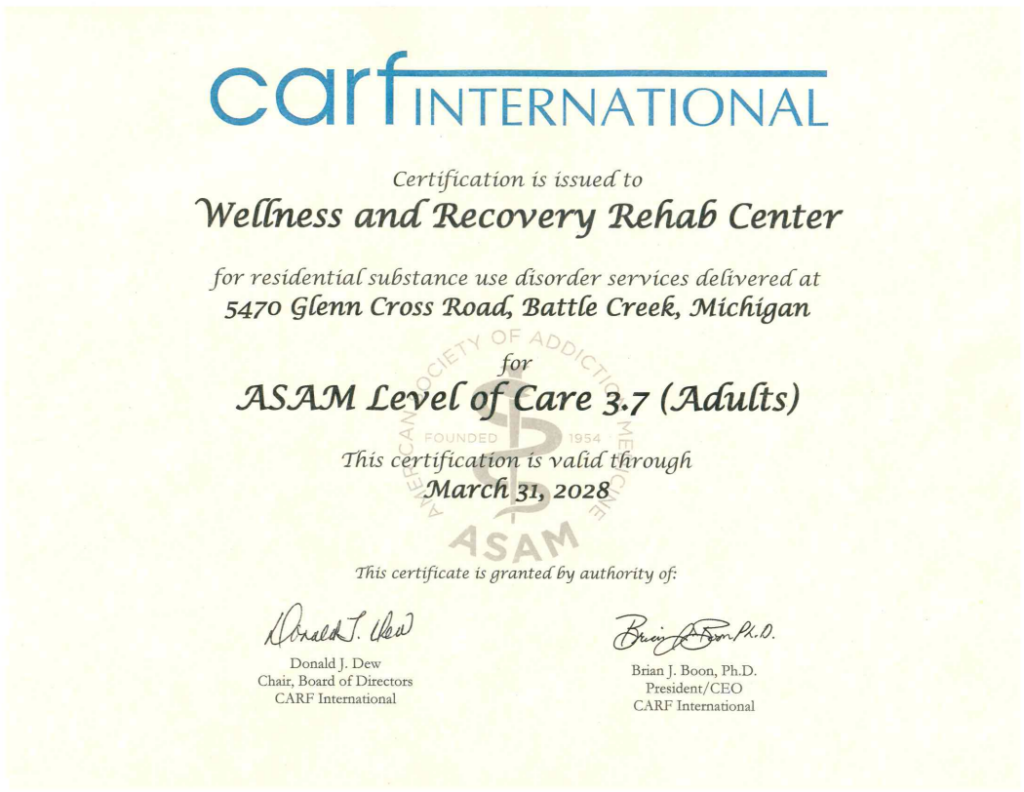
At Wellness and Recovery, we provide tailored Michigan mental health treatment plans to every individual who comes to us for healing.
Mental health is the foundation of a balanced and fulfilling life. It influences thoughts, emotions, and behaviors, shaping how individuals handle stress, build relationships, and make decisions.
Neglecting mental health can lead to:1

The conversation around mental health treatment has evolved significantly over the years. What was once a largely ignored topic is now recognized as a critical component of public health.
“One of the biggest challenges in addressing mental health stigma is the misconception that seeking help is a sign of weakness. At Wellness and Recovery, we work to create a safe, non-judgmental environment where patients feel comfortable discussing their struggles. Through psychoeducational groups and individual therapy, we educate patients about the nature of mental health conditions and the importance of treatment. We also emphasize the strength it takes to seek help and the positive impact that treatment can have on their lives. By fostering a supportive community, we help patients overcome stigma and embrace their journey to recovery.”

With nearly 50% of individuals facing mental health struggles going untreated, the disparity between those who need care and those who receive it remains alarming. Bridging this gap requires urgent improvements in the accessibility and effectiveness of mental health treatment programs.2
Mental health treatment encompasses various approaches aimed at managing and alleviating symptoms of mental health conditions. These treatments are designed to provide individuals with the tools they need to cope with mental health challenges effectively.
Effective Michigan mental health treatment involves a combination of therapeutic approaches, lifestyle adjustments, and, in some cases, medication. Treatment can take place in various settings, including outpatient therapy, inpatient hospitalization, rehabilitation programs, or community-based support.
“At Wellness and Recovery, we recognize that mental health and addiction are often deeply intertwined. Our approach to treatment is holistic, addressing both the substance use disorder and any co-occurring mental health conditions simultaneously. We utilize evidence-based therapies such as cognitive behavioral therapy (CBT), dialectical behavioral therapy (DBT), and eye movement desensitization and reprocessing (EMDR) to help patients understand and manage the underlying psychological factors contributing to their addiction. Our dual diagnosis treatment ensures that patients receive comprehensive care tailored to their unique needs, promoting long-term recovery and mental well-being.”

Dysthymia is a chronic form of depression lasting for at least two years. Symptoms are milder than major depression but longer lasting, affecting overall quality of life.

Individuals with PTSD may experience:

Impulsivity is often associated with other mental health conditions, such as attention deficit hyperactivity disorder (ADHD) or personality disorders.8
Early intervention and preventative methods are key when it comes to Michigan mental health treatment.


At Wellness and Recovery, we offer a range of treatment approaches to help individuals navigate their healing journey.
Our co-occurring Michigan mental health treatment opportunities include:
Below are some of the most common approaches we use for co-occurring mental health symptoms:
CBT focuses on recognizing harmful thought patterns that contribute to emotional distress. These distorted thoughts can intensify feelings of anxiety and hopelessness, often manifesting as:
At Wellness and Recovery, medications complement therapeutic work by helping individuals achieve greater stability.
Below are some of the most commonly used medications that are often used in Michigan mental health treatment programs:
Antidepressants are often used to treat depression, anxiety disorders, and related conditions. These medications work by modulating brain chemicals associated with mood.15
Mood stabilizers are commonly prescribed for individuals with bipolar disorder. These medications promote greater emotional stability by preventing both manic and depressive episodes.16
Anti-anxiety medications are used to manage the symptoms of anxiety disorders. These medications help reduce panic attacks, rapid heart rate, and shortness of breath.17
Antipsychotic medications are used to treat conditions such as:18
These medications help manage symptoms like delusions, hallucinations, and disorganized thinking. Antipsychotics are also sometimes prescribed as adjuncts to antidepressants for individuals with treatment-resistant depression.19
At Wellness and Recovery, we offer holistic and alternative co-occurring mental health treatment that is designed to complement and enhance SUD recovery.
These approaches focus on fostering balance and well-being through natural, non-invasive methods.
The most common among them are:
Regular meditation can reduce stress levels, enhance emotional control, and increase self-awareness. Over time, it can significantly improve mood, cognitive function, and overall mental health.20
Yoga can also help individuals reconnect with their bodies by promoting relaxation, physical strength, and mental clarity:21
Art therapy allows individuals to express themselves through activities such as painting and drawing. This nonverbal form of expression is helpful for individuals who struggle to articulate their emotions through words.
Music therapy uses the power of music to facilitate emotional expression and healing.
Music therapy helps individuals connect with their emotions, promoting relaxation and emotional well-being. This can be helpful in reducing anxiety, boosting mood, and fostering a sense of connection.22
Outdoor adventure therapy incorporates activities such as hiking, rock climbing, and team-building exercises to help individuals build self-confidence and develop resilience.

At Wellness and Recovery, we prioritize a well-rounded approach to our co-occurring Michigan mental health treatment.
Below are the core elements of our approach that help individuals achieve sustainable mental well-being alongside their SUD recovery:
Effective mental health treatment begins with a deep understanding of the individual. At Wellness and Recovery, we create personalized treatment plans that focus on the unique needs of each client.
“Each patient at Wellness and Recovery receives a personalized treatment plan that addresses their specific symptoms. Our multidisciplinary team conducts thorough assessments to identify co-occurring disorders and develop a comprehensive care strategy. We integrate therapies such as trauma-focused treatment, rational emotive behavior therapy (REBT), and medication-assisted treatment (MAT) when appropriate. By tailoring our approach to each individual, we ensure that both their mental health and addiction are treated concurrently, leading to more effective and sustainable outcomes.”
Our process involves a comprehensive assessment, which includes:
This thorough approach enables us to design a treatment plan that addresses immediate needs while setting the stage for long-term recovery.
At our serene, Battle Creek, Michigan facility, we cultivate a tranquil and soothing atmosphere that encourages individuals to focus on their mental health treatment. Through structured environments, a sense of control and safety is maintained throughout the recovery process.
In addition to the physical structure, we create a culture based on:
By encouraging open communication and building a strong sense of community, we help individuals form trusting relationships with both therapists and peers. This connection is essential for recovery, as it combats feelings of isolation and promotes a sense of belonging.
At Wellness and Recovery, aftercare planning begins early in the treatment process, with our team working closely with individuals to identify potential challenges they may face when transitioning from treatment back to their everyday lives.
This may include:
This level of support helps individuals sustain their progress and continue their growth in recovery.
At Wellness and Recovery, we understand the courage it takes to seek help. Our expert team is here to guide you through every phase of your recovery, offering a range of evidence-based treatments designed to promote overall well-being.
Whether it’s through individual therapy, group sessions, or holistic wellness practices, we tailor our approach to ensure the best outcome for each client.
Get in touch with us today to learn more about how our co-occurring Michigan mental health treatment services can help you move forward with confidence and peace of mind.
